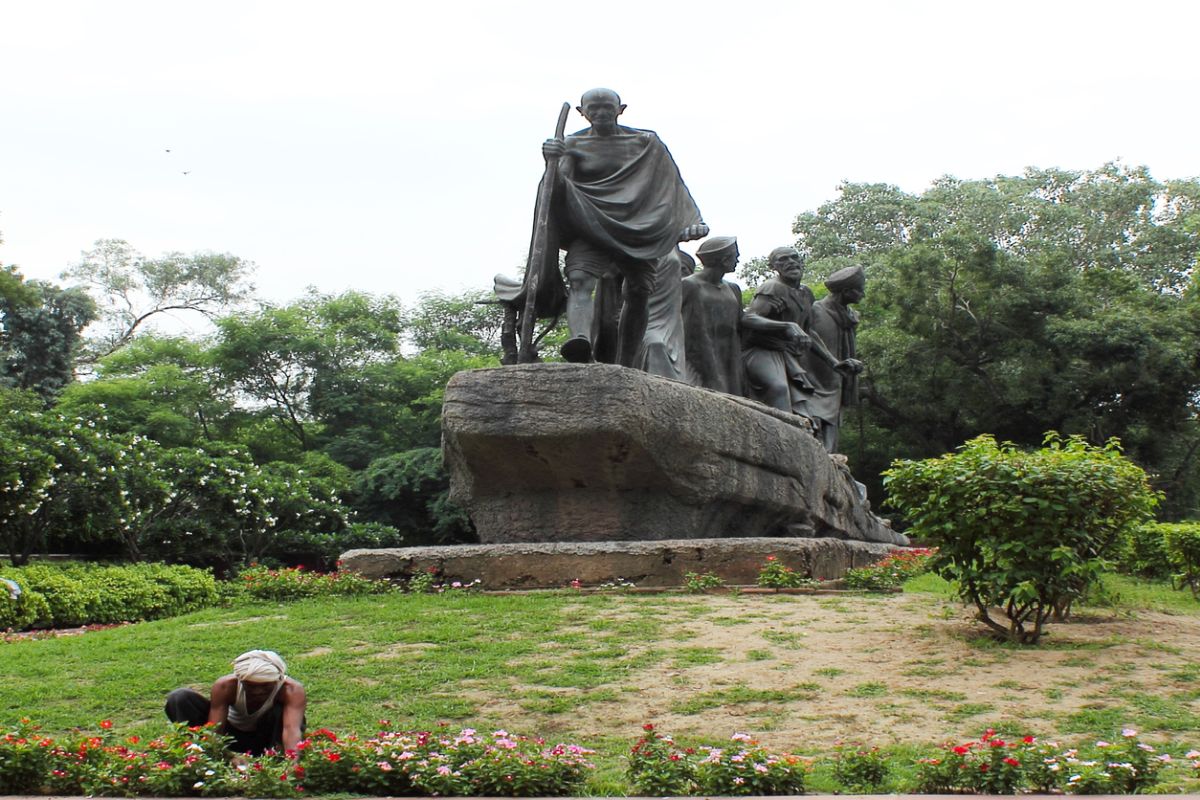Himachal assembly by-polls: Congress announces candidates for 3 seats
The by-polls in six Assembly constituencies in the state are scheduled to be held on June 1 along with the Lok Sabha elections.
Although VD Sarvarkar, the then president of the Hindu Mahasabha, kept demanding Akhand Bharat or undivided India, ironically he was the one who propounded the twonation theory in 1923, in his book Hindutva, 17 years before Jinnah did in 1940. MS Golwalkar, the head of the RSS, also felt that the freedom movement should not be an anti-British struggle for territorial gains, instead it ought to be a movement towards establishing a Hindu nation. The Congress leadership had increasingly sidelined Gandhi by the end of 1946

On the morning of 3 June 1947, the day the partition plan was announced Gandhi had serious doubts pertaining to the wisdom of the decision. (Photo: iStock)
History informs us that Mahatma Gandhi arrived in Delhi from Calcutta in September 1947 to go to Punjab and restore peace there. On being briefed by Sardar Patel about the explosive communal situation in Delhi he changed his plans and decided to continue his stay in Delhi to restore peace with the firm determination to ‘Do or Die.’
“The moment Gandhi announced his decision to go on fast, Dr. Sushila Nayar, who took his constant care, came running to me with the news “ hat Gandhiji had decided to launch a fast unto death unless the madness in Delhi ceased,’ writes Pyarelal, the author of Mahatma Gandhi: The Last Phase. Even in that climate of momentary and deep anguish the mention of Rs 55 crore did not come out of his mouth.
The press release of the Government of India also did not have any reference to it. But critics of Gandhi availed of the opportunity to link the issue of payment of dues to Pakistan. Throughout the struggle for independence Gandhi’s cry was that of a lone voice in the wilderness saying that India should not be broken up. He stood steadfast in his belief until the very end. In his opinion Hindus and Muslims were sons of the same soil of India, they were brothers who therefore must strive to keep India free and united.
Advertisement
He even declared: “Therefore, those who want to divide India into possibly warring groups are enemies alike of India and Islam. They may cut me into pieces but they cannot make me subscribe to something which I consider the wrong.” Although V D Sarvarkar, the then president of the Hindu Mahasabha, kept demanding Akhand Bharat or undivided India, ironically he was the one who propounded the two-nation theory in 1923, in his book Hindutva, 17 years before Jinnah did in 1940. MS Golwalkar, the head of the RSS, also felt that the freedom movement should not be an anti-British struggle for territorial gains, instead it ought to be a movement towards establishing a Hindu nation.
The Congress leadership had increasingly sidelined Gandhi by the end of 1946. By that time, Jawaharlal Nehru and Sardar Patel had come to accept the idea of Partition without even consulting Gandhi. When the crucial moment for a final decision arrived, Gandhi told Maulana Azad on 3 March 1947 before he met Mountbatten: ‘If the Congress wishes to accept Partition, it would be over my dead body.’
Jinnah had succeeded in poisoning the minds of a large section of Muslims in India. Gandhi even floated an idea for the foreign rulers to appoint Jinnah as the Prime Minister and then quit India. But, both Mountbatten and to an extent the Congress found Gandhi’s suggestion impracticable. Eventually, the Congress Working Committee accepted the Mountbatten plan to divide the country. Gandhi felt betrayed and let down.
On the morning of 3 June 1947, the day the partition plan was announced Gandhi had serious doubts pertaining to the wisdom of the decision. He told Rajendra Prasad, ‘I can see only evil in the plan.’ In utter frustration he started to speak in an anguished idiom: ‘O God, please take me away!’. He was completely frustrated and broken down. Questions are often raised as to why why Gandhi did not resort to a fasting to protest against the Partition of India. He did not do that simply because partition itself was not the root of the problem.
No less critical was the suspicion and hatred which resulted in the riots and threats of civil war. They in turn made the Partition possible. It was the suspicion and hatred which had to be attacked. Gandhi tried his best to assure the people that Hindus and Muslims could live in peace. He was engaged in healing the wounds of India. The people themselves would decide their future by the way they behaved and liked.
The riots had not ended with Partition. The riots pierced Gandhi’s heart. He decided on 1 October 1947: ‘I would prefer to die rather than live in India where such brutalities are practised.’ Cynicism is the easiest of all reactions. We have a habit of finding fault with almost everything under the sun. Even a man like Mahatma Gandhi who is referred to in history books as the most powerful driving force behind the independence movement is also a victim of our cynicism.
He is often held in contempt, questioned, dismissed or interpreted without being read. An American essayist once said: ‘Is it so bad, then, to be misunderstood? Pythagoras was misunderstood, and Socrates, and Jesus, and Luther, and Copernicus, and Galileo, and Newton and every pure and wise spirit that ever took flesh.’ Mahatma Gandhi was a pure and wise spirit that took flesh.
(The writer is a retired IAS officer)
Advertisement